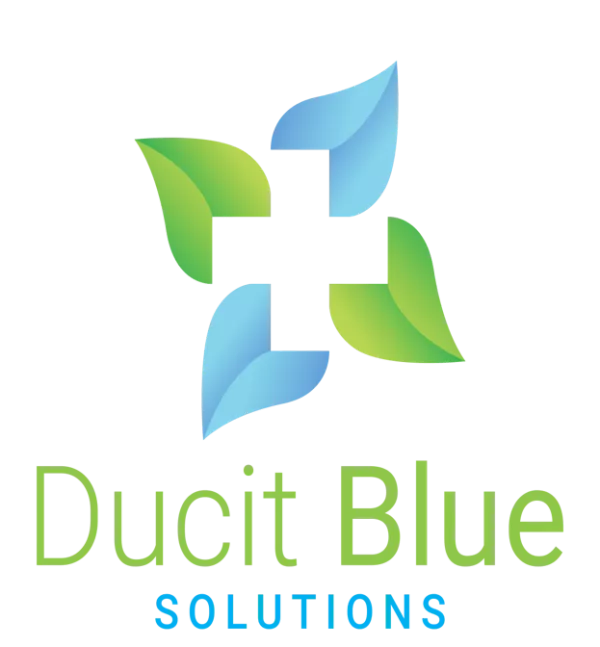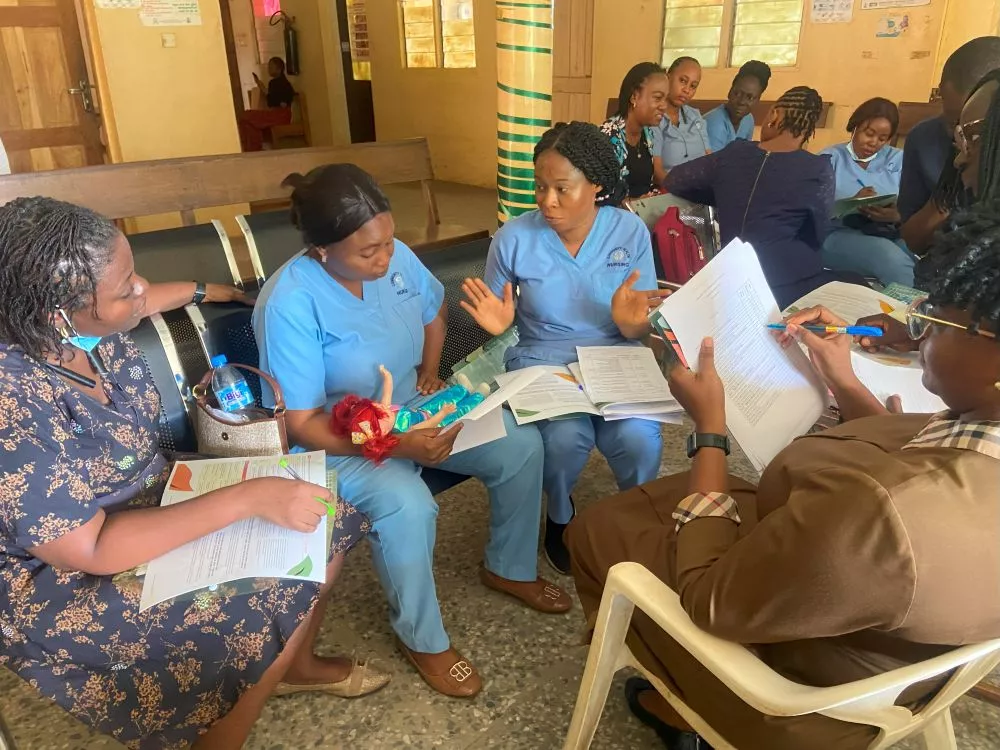
RCPCH Global Child Health empowers health workers to strengthen the quality and efficacy of maternal, newborn and child healthcare in low- and middle-income countries. This article reports on our recent and ongoing work in Nigeria.
Many children with development delays and disabilities are not getting the support they need
Globally, 250 million children under the age of 5 are at risk of poor physical and neurological development. This can lead to lifelong disability, often due to undiagnosed and untreated Early Childhood Development (ECD) challenges. Almost 9 in 10 of these children live in low- and lower-middle income countries.1
Nigeria is Africa’s most populous country, with almost half its residents under the age of 18 years and an estimated 32 million 0-4 years old.2 The country currently experiences the highest number of neonatal deaths in sub-Saharan Africa and it is estimated that over 2,000 babies are born too early every day.
- An increased chance of development delay
-
57% of mothers in Nigeria do not access clinics or hospitals to give birth and more than half give birth without the support of a skilled health worker.3 Furthermore, 12 in 100 live births are premature.4
This increases the chances of babies experiencing oxygen deficits at birth, as well as other complications, associated with developmental delay and disability.
These babies are at increased risk of long-term physical, and neurodevelopmental challenges and are rarely provided with the early interventions needed to improve their chances of growing and thriving.
- A lack of early interventions, specialist assessments and financial resources
-
Due to a lack of systemic screening and widespread cultural beliefs and stigma, children with developmental delays and disabilities in Nigeria are rarely identified in time to receive crucial early interventions which would optimise their development.
For those children identified, there are limited skilled facilities to provide the specialist assessments needed to meet their health and education needs.
Where services do exist, they often fall beyond the geographical reach and financial resources of the families who need them most, leaving caregivers unsupported and children unable to reach their full potential.
Our partnership shares a vision to build capacity, strengthen systems and advocate for change
In January 2024, we formed a partnership with Obafemi Awolowo University Teaching Hospitals Complex (OAUTHC), Osun State in Nigeria with a grant managed locally by Ducit Blue, under the Global Health Partnership's Global Health Workforce Programme (GHWP).
This is a UK Department of Health and Social Care funded programme which awards grants to UK-African health partnership projects contributing towards health system strengthening across Ghana, Kenya and Nigeria.
I now see every encounter as an opportunity to support a child’s development
- Capacity building
-
Strengthening the skills and competencies of health professionals, educators and caregivers to support optimal early childhood development (ECD) outcomes
- Systems strengthening
-
Embedding ECD into existing health and community service structures, creating a sustainable model for early intervention
- Policy advocacy
-
Working with stakeholders to influence policies that prioritise ECD, ensuring a supportive legislative and funding environment
- Evidence generation
-
Collecting data to inform best practices and scale up successful interventions
We train health professionals with the latest knowledge and skills
Through a combination of in-person workshops, clinical exchange and mentorship, paediatricians, nurses, midwives and allied health professionals were equipped with the latest ECD knowledge and skills to screen and assess children for developmental delay and neurodevelopmental disability. This included a bi-directional clinical exchange with Liverpool’s Alder Hey Children’s Hospital.
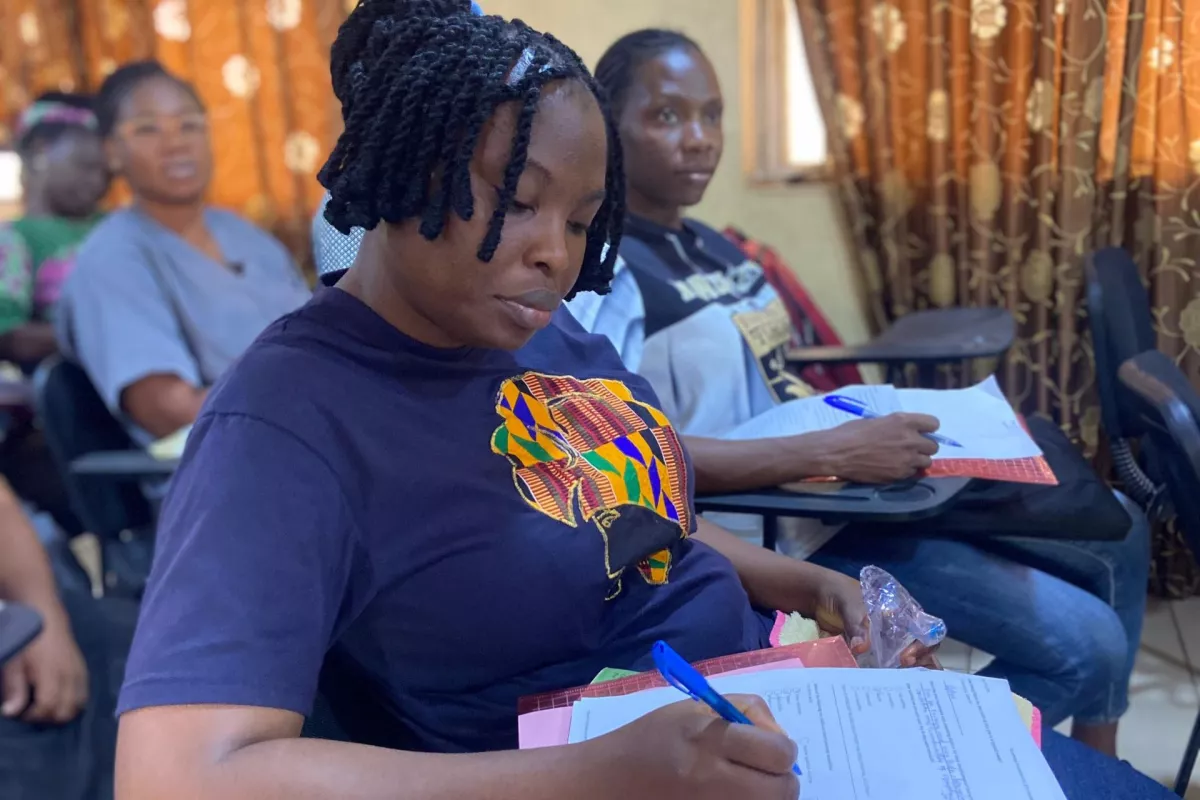
In addition, the project has seen the refurbishment and equipping of a dedicated Child Development Centre (CDC) at OAUTHC. This has enabled improved multidisciplinary care for children with neurodevelopmental disabilities.
- Training in numbers
-
- Over 292 frontline healthcare workers trained in ECD promotion, developmental screening and assessment
- 19 Primary Healthcare Centres routinely delivering ECD health talks and screening children
- Over 11,500 children screened for developmental delay or disability
We have been meeting as a multidisciplinary team for years, but we were unable to do joint assessments for our patients because of space constraints. The availability of the CDC has now changed all that … we have the space to do joint assessments, and we enjoy doing these. They save the patients and caregivers time, make things more convenient for them rather than moving from one area of the hospital to another for individual assessments, and importantly enable us to provide a better standard of care.
We empower parents and caregivers to care for their children
The project implemented outreach programmes to empower parents and caregivers of children with developmental disability. We developed trainers and ran “Baby Ubuntu” groups, a training and support group model developed by the International Centre for Evidence in Disability, at the London School of Hygiene & Tropical Medicine.
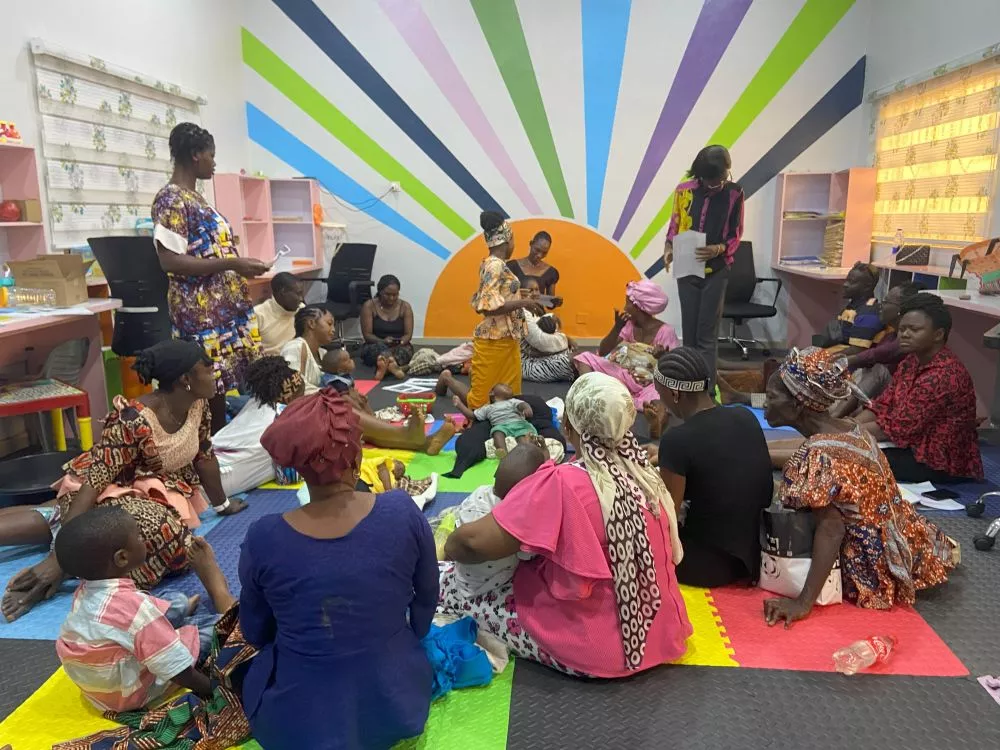
I see this support group as an avenue, a place, whereby parents in the same position can come together and share experiences. We talk about our children’s condition. We share our stories. We share our pains together. We share our success together. So, it has been a kind of relief. And that’s why it’s important for us.
We integrate ECD into routine health services
One of the core strategies has been the integration of ECD screening, counselling and interventions into existing maternal and child health structures.
By embedding ECD health talks and developmental screening into antenatal care, immunisation clinics and growth monitoring, the project ensures early identification of developmental delays and timely support for at-risk children.
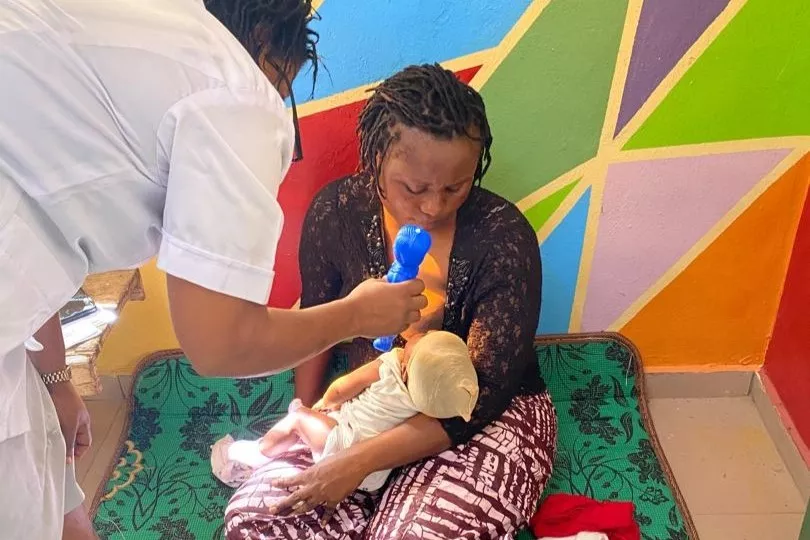
Every Monday, during or before immunisation we always screen every baby from 6 weeks to 18 months at Family Planning and Immunization Clinic; we screen up to 30 babies every Monday.
We advocate for the integration of ECD into state and national policy
Following the successful formation of a cross-sector technical working group and several facilitated workshops, Osun State Ministry of Health finalised and launched its ‘Early Childhood Development Strategy’. This draws on the WHO / UNICEF framework and has three key priority areas:
- Universal promotion of early childhood development
- Integrated developmental screening within primary healthcare
- Integrated management of children with developmental delays and disabilities
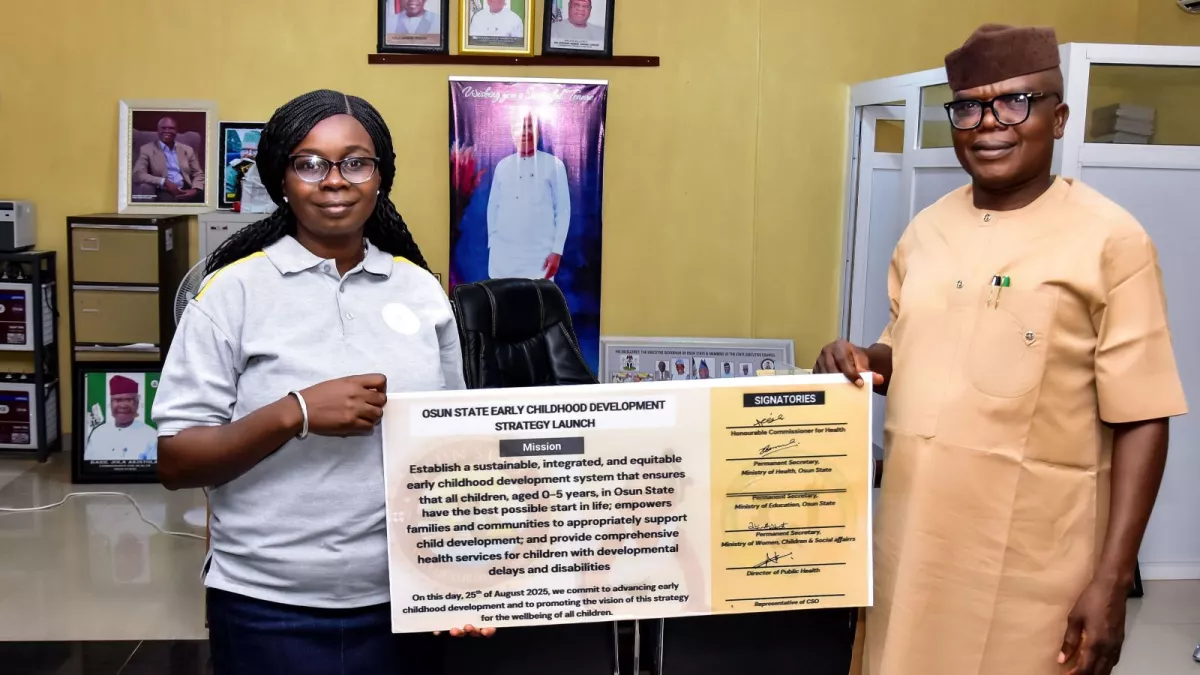
The project engaged policymakers at a national level, highlighting the long-term social and economic benefits of investing in early childhood.
In July 2025 Suzanna Bright, RCPCH Project Manager and Dr Olorunmoteni, OAUTHC Director of Early Childhood Development Project were invited to share insights from the project at the Federal Ministry of Health & Social Welfare Technical Working Group on Child Health.
It’s really a great delight for me to see the early childhood development strategy for Osun State being presented publicly today.... it is a promise for every child, because every child needs to not just survive but to thrive.
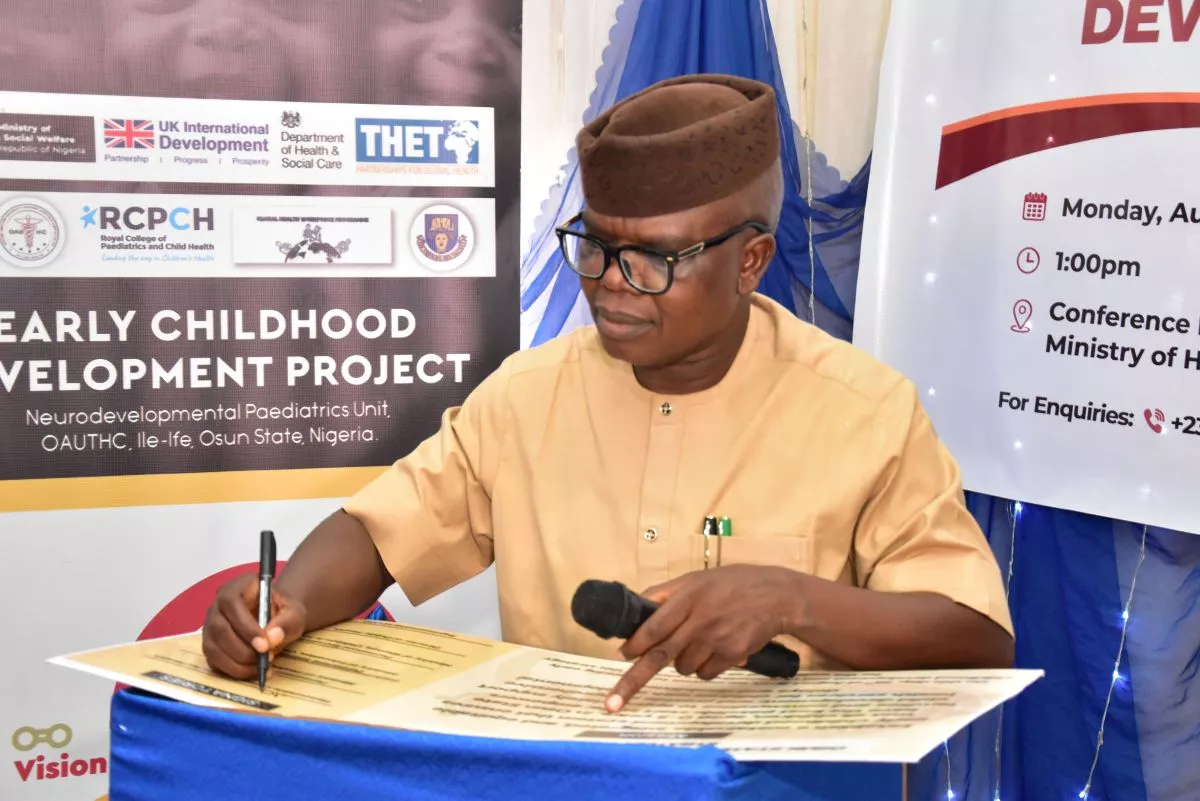
The project has also supported the The Permanent Secretary, Osun State Ministry of Health to develop a memo which will be presented at the annual ‘National Council on Health’ meeting. This is Nigeria’s apex health policy-making body, presenting a pivotal opportunity to expand the ECD agenda across the remaining 35 states.
The promise of a future where every child can reach their potential
This ECD project between RCPCH and OAUTHC exemplifies what is possible when global partnerships prioritise equity, learning and local leadership. Through shared vision, technical excellence and unwavering commitment, RCPCH, OAUTHC, and their global health partners are shaping brighter futures for children in Nigeria and beyond.
For more information on this transformative partnership, please contact RCPCH Global at global@rcpch.ac.uk.
Sponsored by:
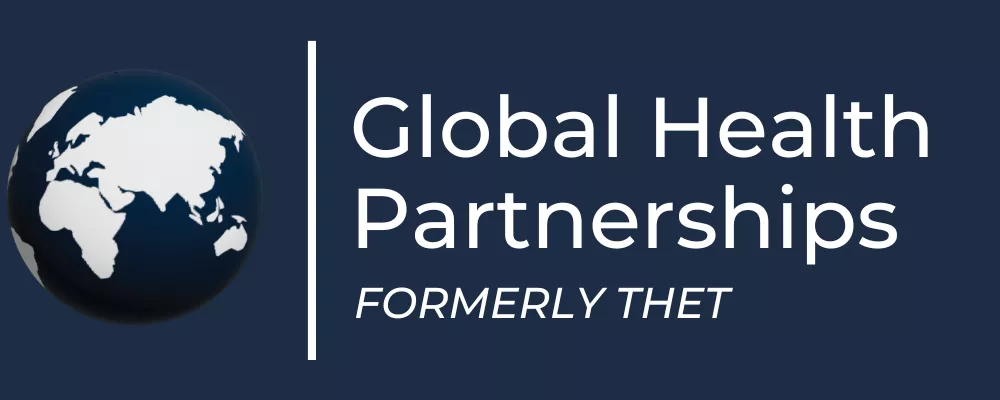
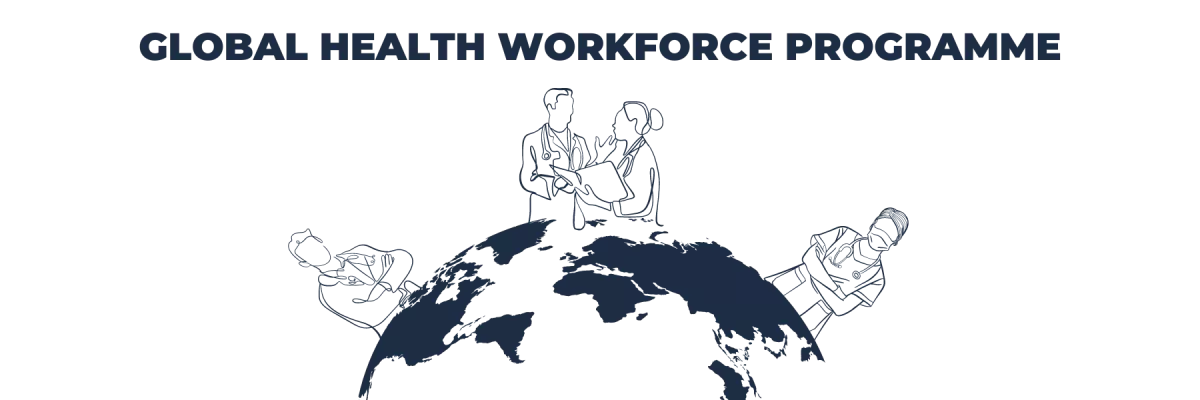
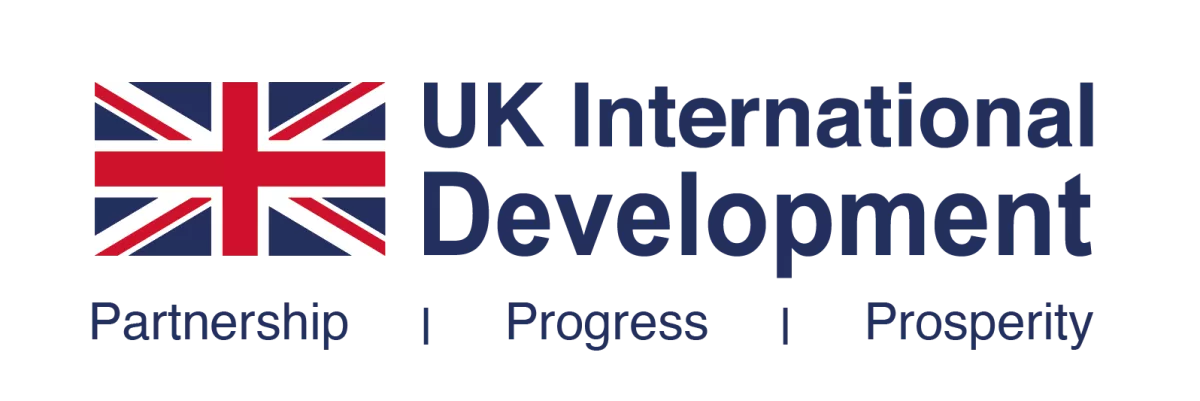
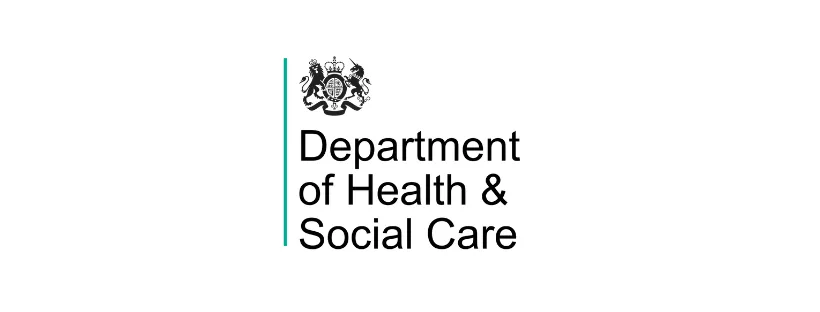
Local partner:
- 1Lancet (2016) Early Child Development Series. 389(10064), 103–118. https://doi.org/10.1016/S0140-6736(16)31698-1
- 2World Bank (2024) Population ages 0–14, Nigeria. Available at: https://data.worldbank.org/indicator/SP.POP.0014.TO?locations=NG
- 3Federal Ministry of Health and Social Welfare of Nigeria (FMoHSW), National Population Commission (NPC) [Nigeria], and ICF (2024) Nigeria Demographic and Health Survey 2023–24: Key Indicators Report. Abuja, Nigeria, and Rockville, Maryland, USA: NPC and ICF Nigeria Demographic and Health Survey 2023-24 - Key Indicators Report [PR157] https://preview.dhsprogram.com/pubs/pdf/PR157/PR157.pdf
- 4Ohuma, E.O., Moller, A., Bradley, E., Chakwera, S., Hussain-Alkhateeb, L., Lewin, A., et al., 2023. National, regional, and global estimates of preterm birth in 2020, with trends from 2010: a systematic analysis. https://doi.org/10.1016/S0140-6736(23)00878-4









